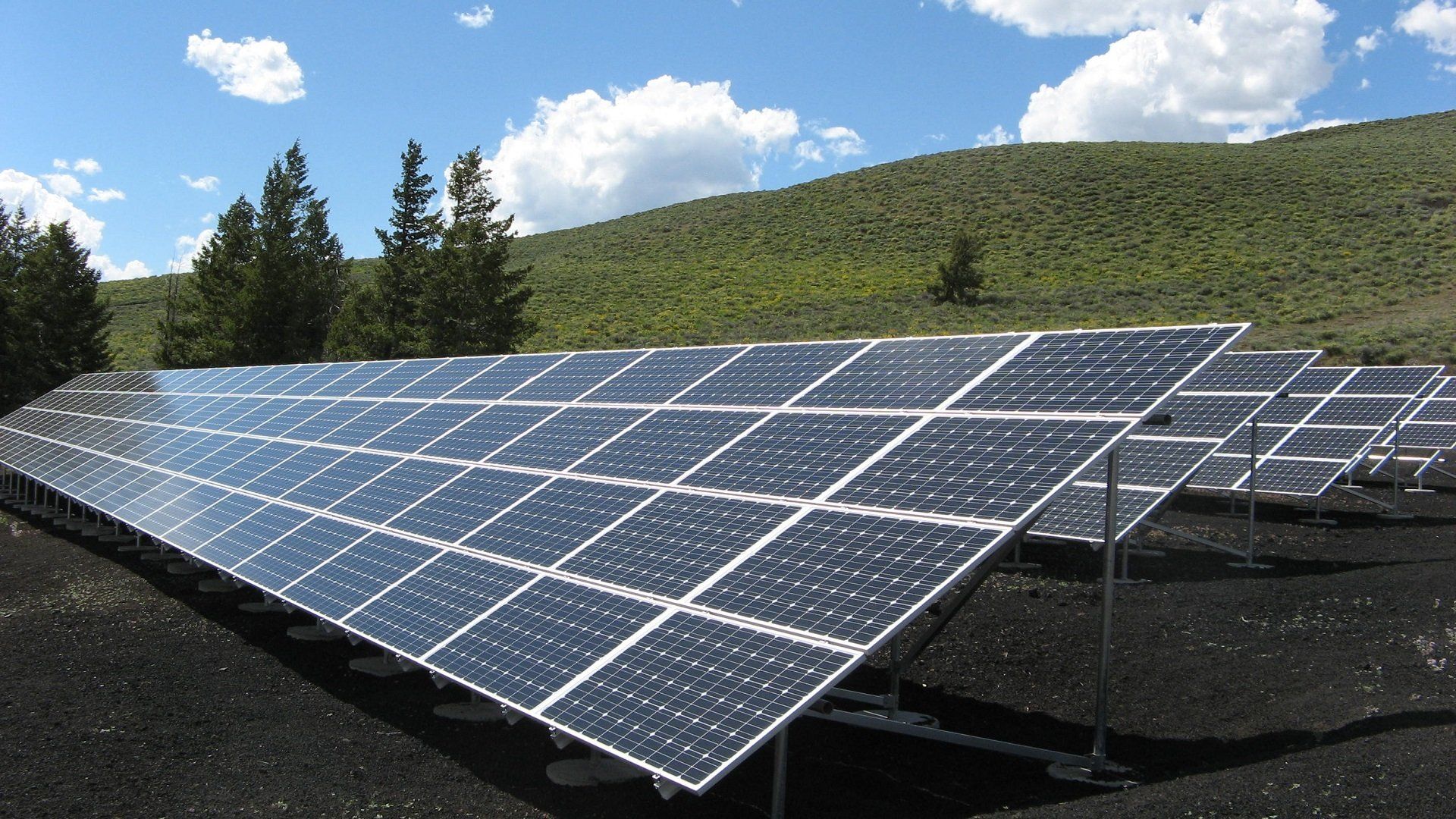WHY DATA CENTRES ARE SUSTAINABLY SMART
Sustainability Practices in Colocation Data Centres

Jamieson Lee Hill, July 28th, 2023
In this article we address the main sustainability issues around colocation data centres (DCs) and encounter some interesting stats about energy & resource consumption. Plus, we examine sustainable initiatives by 3 multi-billionaire brands: Google, Meta and Microsoft. Finally, we explore the key eco-sustainability measures implemented by IP House.
Sustainability Issues For Data Centres
Energy consumption
Energy consumption is a key issue for colocation data centres. The facilities need a considerable amount of energy to run servers and cooling systems,
“Data centers usually use a lot of energy to maintain their servers. They consume about 1,000 kWh per square meter. This is about ten times the power consumption of a typical American home.”
Source: C&C Techgroup.com, Jun 8, 2023
IDCs are estimated to account for around 1% of global electricity consumption. This high energy usage leads to increased greenhouse gas emissions and rising energy costs. What's more, server racks are one of the prime culprits for high energy consumption,
“The most common data center equipment is the server racks, which use a lot of energy to maintain and cool down their components.”
Source: C&C Techgroup.com, Jun 8, 2023
Water Consumption
Large amounts of water are needed in DCs for cooling purposes. Thus, it is important for colocation data centres to implement conservation measures to reduce their impact on water resources.
“ A large data center, researchers say, can gobble up anywhere between 1 million and 5 million gallons of water a day — as much as a town of 10,000 to 50,000 people.”
Source:
Washington Post, Apr 25, 2023
Carbon Footprint
With a high carbon and significant environmental impact, it is crucial that energy efficient technology and renewable energy resources are used by DCs,
“Data centers account for 2.5% to 3.7% of global GHG emissions. Data center emissions exceed GHG* emissions from the aviation industry (2.4%) and other activities that fuel the global economy.”
Source: 8billiontrees.com, 2023
*(GHG = Greenhouse gas emissions)
Rising Demand For Data Centres
With increasing numbers of businesses using DCs, the overall demand and reliance on digital technologies means that sustainability and resource consumption remain vital issues for the future.
These challenges have led many colocation data centres to adopt renewable energy sources like solar and wind power, and energy-efficient technologies to reduce their carbon footprint.
Multi-billion Dollar Brands Use A.I. Models For Sustainability
You could be forgiven for thinking that A.I. was only detrimental to the human race from news coverage in recent years. However, A.I. has a prominent role in leading data centres towards increased sustainability and energy efficiency. In fact, A.I. uses predictive analytics to highlight areas of concern and links them with different processes and energy consumption.
Let’s see how A.I. is helping to reduce the energy consumption and carbon footprint of multi-billion dollar companies.
Meta: Sustainability in Data Centres
First up, is the social media ‘megalosaurus’ Meta. They have been investigating ways how ‘its data centers will operate under “extreme environmental conditions” that might lead to unsafe work environments’.
Meta has been creating physical models to simulate extreme conditions. Then they input this data into A.I. models which help to optimise the energy consumption of cooling and airflow in their servers. Basically, the A.I. models help discover ways to reduce energy consumption and costs.
Microsoft
Towards the end of 2012, Microsoft launched its ‘A.I. anomaly detection methods. They were designed ‘to gauge and mitigate unusual power and water usage events within the data center, using telemetry data from electrical and mechanical devices.’
Microsoft also utilises A.I. methods to spot and solve power meter problems within their data centres. They also determine the optimum placement of servers to minimise the ‘wasted power, network and cooling capacity’.
Google
Google was able ‘to cut down 40% of its data center’s cooling costs’ just by controlling the cooling infrastructure through AI programs. Indeed, A.I. gives facility managers a clear picture of the health for all the data centre components. That way, Google can repair or replace components that need attention.
Encouraging Steps By The Big Brands
With leading brands working hard to make their data centres more sustainable, this is welcome news for sustainability experts.
A.I. systems that regulate energy are improving the environmental footprint of colocation data centers worldwide. With data centres responsible ‘for 0.3% of all carbon dioxide emissions (according to a Environmental Investigation Agency report in 2020), the example set by Meta, Microsoft and Google is encouraging.
Sustainability Practices In IP House
From looking at 3 leading household brands, we are now going to explore how IP House maintains best practices in eco sustainability.
External Sustainability Measures
First of all, IP house has a significant sized, private secure parking and loading area, with strong natural light access. Also, low voltage auto lighting used during darker conditions saves on energy consumption.
Likewise, there are vast solar panels used through roof lines to ensure that ongoing energy management takes place throughout the year.
Transport wise, the vehicle fleet is balanced to ensure electric usage is maintained for the majority of scenarios. Last but not least, all the glazing is heat insulating which reduces the electricity usage and costs.
Internal Sustainability Measures
Inside IP House, recycling is a mandatory concept. Every team member contributes to minimal packaging and maximum recycling of all materials. In addition, customers support this by ensuring packaging of any goods to the DC is minimised and recyclable by IPH.
Next up, aircon usage is optimised with the latest low energy, auto conditioning systems that ensure the temperature is maintained without an overuse of energy. Also, filtering is key; IP house has continuously invested in new technology in the form of filtration materials. These enhance the lifespan of the air con units whilst using fully recyclable materials.
Customer Power Management
Customer power management is monitored to help ensure usage is managed and reported on where requested. This allows customers to ensure they are not over subscribing and this reduces their carbon footprint and costs.
Low Energy Lighting
Low energy, auto power lighting is used throughout the data centre. This ensures that minimal lighting is running in areas with low access requirements or during any low periods of inactivity.
Heat Management
Heat management and disbursement is monitored and controlled 24/7 to ensure optimal conditions and minimal energy loss. These all are monitored using the very latest active alarms controls. Furthermore, cold aisle containment is used throughout the Data Halls.
IP Houses’ Future Plans For Sustainability
Currently, we are working closely with key partners and suppliers to introduce more new initiatives to sustain our low energy drive. Equally, not all of our measures involve hi-tech investment which is a sustainable brownie point! We are excited to be leading by example in the Data Centre space!
Watch this space for updates.
If you would like to talk about Colocation Data Centre services for your company, please fill out the form below. Let’s talk!
Sources:
- Washington Post 2023:
https://www.washingtonpost.com/climate-environment/2023/04/25/data-centers-drought-water-use/
- 8 Billion Trees:
- CC-techgroup.com: https://cc-techgroup.com/data-center-energy-consumption/#:~:text=Data%20centers%20usually%20use%20a,and%20cool%20down%20their%20components.
- Network-King.net: https://network-king.net/five-areas-of-environmental-impact-in-data-centres/
- Techcrunch.com:https://techcrunch.com/2022/06/18/microsoft-and-meta-join-google-in-using-ai-to-help-run-their-data-centers/
- The Sage next.com:
https://www.thesagenext.com/blog/technology-trends-transforming-data-centers
EXTENDED READING
Fancy reading more about Colocation Data Centres and Sustainability? Here are some other articles which we enjoyed reading:
- Green Intelligence: Why Data And AI Must Become More Sustainable
March 22,2023
- Making Data Centers More Sustainable
https://www.datasciencecentral.com/making-data-centers-more-sustainable/
September 17, 2022
- Top 10 sustainable data centre innovations
https://datacentremagazine.com/articles/top-10-sustainable-data-centre-innovations
February 8, 2023
- Data centres race to be green
https://www.mida.gov.my/mida-news/data-centres-race-to-be-green/
January 23, 2023
- What Makes a Data Center Sustainable?
https://sustainability.fb.com/blog/2023/04/17/what-makes-a-data-center-sustainable/
April 17, 2023
Contact Us











